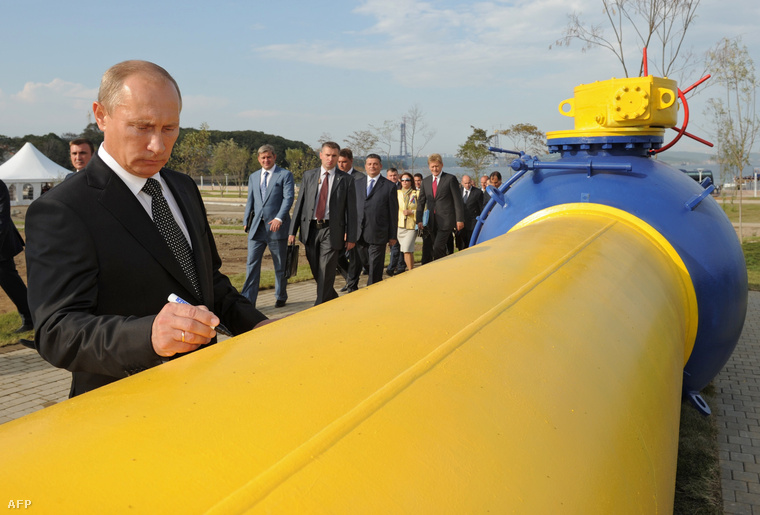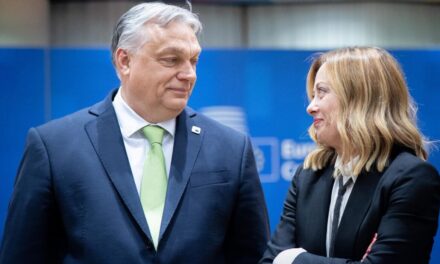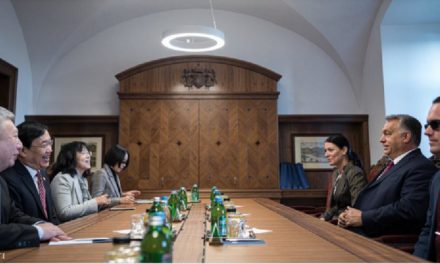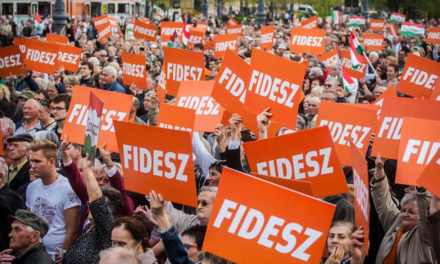Since the outbreak of the armed conflict between Russia and Ukraine, Brussels and American politicians have floated the introduction of sanctions affecting the energy supply, and domestic left-wing politicians have also demanded the same. The intervention would have catastrophic consequences for the economy of the European Union and Hungary, so the threats caused growing negative expectations, reminds the Századvég Foundation in its statement on Tuesday, which states: a. floating sanctions is counterproductive, so it must be stopped.
In its resolution, Szadvég mentions that an armed conflict broke out between Russia and Ukraine on Thursday, February 24. Europe's energy supply relies heavily on Russian imports, so the event led to an increase in energy prices. The news of the war was priced in by the market: in the case of the most affected natural gas, prices rose from 88 euros/MWh on Wednesday to 93 euros/MWh by Friday's close on the Dutch gas exchange. The reason for the moderate increase was that the European Union's first sanctions package did not include any measures that affected gas deliveries.
The fear of limiting the energy supply is well-founded, Századvég emphasizes, adding: the European Union's natural gas consumption was 505 billion cubic meters in 2020, of which 175 billion cubic meters were imported from Russia. The community has been hit by an energy crisis for the past six months, so the level of gas storage is at a record low: it would only be able to cover a few weeks' consumption. The needs of the current heating period and partly the summer demand can be provided from our own and non-Russian external sources, as well as from the natural gas available in the storages, but not the refilling of the storages and the increased consumption of the next heating period. Due to the limited supply of the world market and the infrastructural capabilities of the European Union, only 2-3 billion cubic meters of additional resources could be procured in the short term, which would not replace the 175 billion Russian imports. Stopping deliveries would almost immediately lead to drastic price increases and, in the short term, to economic recession, plant closures, job losses, the collapse of supply chains and restrictions on residential heating services.
However, since Russia realizes significant sales revenue from the export of energy carriers, there is increasing social pressure on Western politicians to extend the sanctions to oil and gas shipments as well, despite the catastrophic social consequences. Many European and American representatives tried to resolve the contradiction by demonstrating their intention to extend the sanctions with their statements. And although the market participants are aware of the unreasonableness of the intervention, as a result of the series of statements, they are increasingly afraid of its introduction. The Hungarian left also wants to extend the sanctions to the energy sector, and this creates political uncertainty that is dangerous for the forint, emphasizes Századvég.
The growing fear has now resulted in a stock market explosion. On Monday, there was a period when the price of natural gas reached EUR 345/MWh on the Dutch gas exchange (this represented a 3.5-fold price increase in one week). In addition, the volatility of the markets has also increased to an extraordinary extent, which has opened up space for speculation. As gas deliveries remain uninterrupted, the consequence of the drastic price increase is that Russia's sales revenue and the costs of the European Union are constantly increasing, adds Századvég, whose position is that the suspension of sanctions is therefore counterproductive: it causes serious damage to the European Union and Hungary. The unfavorable trend points out that in a war situation it is especially important that representatives refrain from politically motivated, irrational statements and make calm, clear statements. And in order to stop the energy market panic, it is essential that Western and Hungarian left-wing representatives stop raising sanctions on the energy supply and declare that they do not support the measure.
Photo: Dmitry Astakhov/AFP













